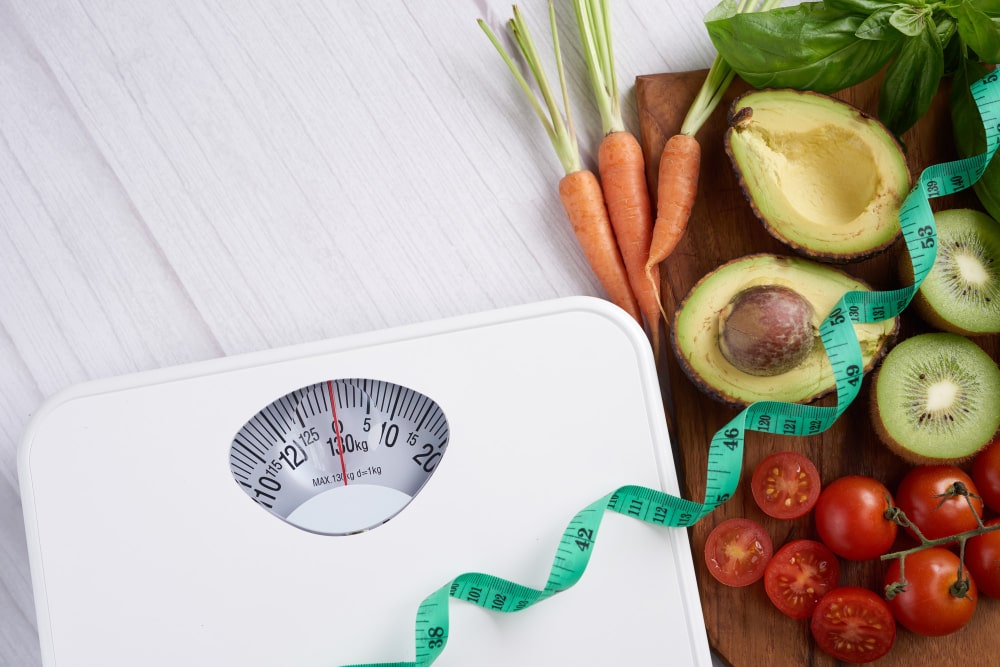Many people believe that there is a greater impact of what are we eating on health instead of when we are eating. However, the food we eat is digested differently at different times.
So why is there a difference in the digestion of food at different times?
It is because of the circadian rhythm that moderates our pattern of sleeping and waking up over 24 hours (1). Mental, physical, and behavioral processes are influenced by circadian rhythms including eating and food digestion (2).
Vice versa, circadian rhythm is also influenced by mealtime. An association has been found between the circadian rhythm and mealtime along with weight status and insulin resistance causing conditions like diabetes and obesity (3–6).
What is the best time to eat?
A healthy weight, improved energy, and decreased risk factors of metabolic conditions are linked with consistent mealtimes (7,8).
- Breakfast: Considered as the most essential meal of the day as it sets the pattern for the level of sugar in the blood for the whole day. It is believed that breakfast should be taken in immediate few hours after waking between 6 and 10 a.m. Scientific evidence also suggests that diet quality may get affected if breakfast is skipped because more calories are eaten during lunchtime when breakfast is skipped (9–12). Moreover, those trying to lose some kilos can take benefit from eating more calories in breakfast than in lunch (13,14).
- Lunch: Lunch should be eaten at that time when the metabolism is at its highest which is between 10 a.m. and 2 p.m. This provides a stronger digestive function to the food. The meals taken at lunchtime should be lighter than what is consumed at breakfast and dinner (15).
- Dinner: Better health outcomes result from eating an early dinner in the evening having fewer calories. The circadian rhythm is regulated by the release of the hormone melatonin which is released at night and regulates the sleep-wake cycles (9,16). With melatonin release, the secretion of insulin reduces therefore the digestion of sugars like glucose is inhibited. Thus, when dinner is scheduled too close to bedtime becomes a risk for chronic illnesses (9,17,18).
What should be eaten to maintain a healthy weight?
A healthy weight can be maintained with an eating plan that contains a variety of food. There is a direct impact of the number of calories we eat and drink on the weight because the same number of calories should be consumed that can be burned by the body to maintain a healthy weight (19).
The diet should contain all the ingredients from the food pyramid. The food we eat should carbohydrates, fats, proteins, minerals, and vitamins. Fruits, vegetables, pulses, dairy products, and grains all should be part of the diet. Dark and green leafy vegetables, tomatoes, oranges, and fresh herbs are a source of minerals, fibers, and vitamins, and just adding onions, broccoli, and peppers in omelets and stews not only enhance the color of food but also provide the required nutrients (20).
Sources
1. Potter GDM, Skene DJ, Arendt J, Cade JE, Grant PJ, Hardie LJ. Circadian Rhythm and Sleep Disruption: Causes, Metabolic Consequences, and Countermeasures. Endocr Rev. 2016 Dec;37(6):584–608.
2. National Institute of General Medical Sciences. Circadian Rhythms [Internet]. [cited 2022 Mar 17]. Available from: https://www.nigms.nih.gov:443/education/fact-sheets/Pages/circadian-rhythms.aspx
3. Stenvers DJ, Scheer FAJL, Schrauwen P, la Fleur SE, Kalsbeek A. Circadian clocks and insulin resistance. Nat Rev Endocrinol. 2019 Feb;15(2):75–89.
4. Poggiogalle E, Jamshed H, Peterson CM. Circadian regulation of glucose, lipid, and energy metabolism in humans. Metabolism. 2018 Jul;84:11–27.
5. Morris CJ, Purvis TE, Mistretta J, Scheer FAJL. Effects of the Internal Circadian System and Circadian Misalignment on Glucose Tolerance in Chronic Shift Workers. J Clin Endocrinol Metab. 2016 Mar;101(3):1066–74.
6. Leproult R, Holmbäck U, Van Cauter E. Circadian misalignment augments markers of insulin resistance and inflammation, independently of sleep loss. Diabetes. 2014 Jun;63(6):1860–9.
7. Pot GK, Hardy R, Stephen AM. Irregularity of energy intake at meals: prospective associations with the metabolic syndrome in adults of the 1946 British birth cohort. Br J Nutr. 2016 Jan 28;115(2):315–23.
8. Gill S, Panda S. A smartphone app reveals erratic diurnal eating patterns in humans that can be modulated for health benefits. Cell Metab. 2015 Nov 3;22(5):789.
9. Lopez-Minguez J, Gómez-Abellán P, Garaulet M. Timing of Breakfast, Lunch, and Dinner. Effects on Obesity and Metabolic Risk. Nutrients. 2019 Nov 1;11(11):E2624.
10. Zeballos E, Todd JE. The effects of skipping a meal on daily energy intake and diet quality. Public Health Nutr. 2020 Dec;23(18):3346–55.
11. Leech RM, Worsley A, Timperio A, McNaughton SA. Understanding meal patterns: definitions, methodology, and impact on nutrient intake and diet quality. Nutr Res Rev. 2015 Jun;28(1):1–21.
12. Leidy HJ, Ortinau LC, Douglas SM, Hoertel HA. Beneficial effects of a higher-protein breakfast on the appetitive, hormonal, and neural signals controlling energy intake regulation in overweight/obese, “breakfast-skipping,” late-adolescent girls. Am J Clin Nutr. 2013 Apr;97(4):677–88.
13. Garaulet M, Gómez-Abellán P. Timing of food intake and obesity: a novel association. Physiol Behav. 2014 Jul;134:44–50.
14. Jakubowicz D, Barnea M, Wainstein J, Froy O. High caloric intake at breakfast vs. dinner differentially influences weight loss of overweight and obese women. Obes Silver Spring Md. 2013 Dec;21(12):2504–12.
15. Dashti HS, Gómez-Abellán P, Qian J, Esteban A, Morales E, Scheer FAJL, et al. Late eating is associated with cardiometabolic risk traits, obesogenic behaviors, and impaired weight loss. Am J Clin Nutr. 2020 Oct 6;nqaa264.
16. McHill AW, Phillips AJ, Czeisler CA, Keating L, Yee K, Barger LK, et al. Later circadian timing of food intake is associated with increased body fat. Am J Clin Nutr. 2017 Nov;106(5):1213–9.
17. Manoogian ENC, Chaix A, Panda S. When to Eat: The Importance of Eating Patterns in Health and Disease. J Biol Rhythms. 2019 Dec;34(6):579–81.
18. Sutton EF, Beyl R, Early KS, Cefalu WT, Ravussin E, Peterson CM. Early Time-Restricted Feeding Improves Insulin Sensitivity, Blood Pressure, and Oxidative Stress Even without Weight Loss in Men with Prediabetes. Cell Metab. 2018 Jun 5;27(6):1212-1221.e3.
19. Harvard School of Public Health. Food and Diet [Internet]. Obesity Prevention Source. 2012 [cited 2022 Mar 17]. Available from: https://www.hsph.harvard.edu/obesity-prevention-source/obesity-causes/diet-and-weight/
20. CDC. Healthy Eating for a Healthy Weight [Internet]. Centers for Disease Control and Prevention. 2022 [cited 2022 Mar 17]. Available from: https://www.cdc.gov/healthyweight/healthy_eating/index.html

